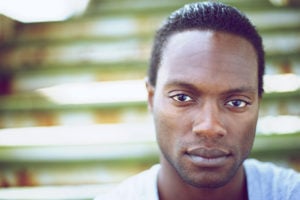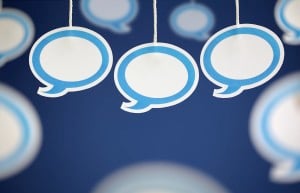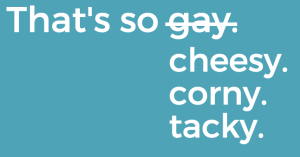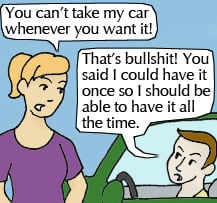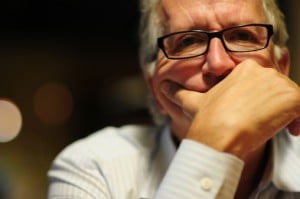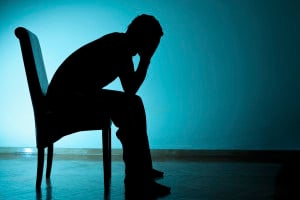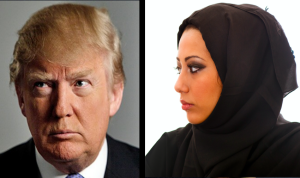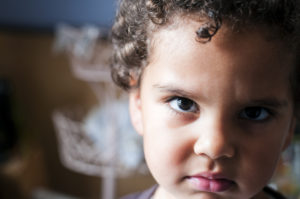British comedian Ricky Gervais, known for his brazen brand of humor, hosted the Golden Globes recently for the fourth time in his storied career in entertainment.
And just like the folks at the Golden Globes expected, having one of comedy’s most boisterous, unapologetic voices spearhead one of the most widely televised events in the nation predictably resulted in a bubbling heap of backlash against Gervais’ quips. Namely, one regarding Caitlyn Jenner.
Jenner’s transition has steadily triumphed as one of the most talked about news stories of 2015 and, predictably, has been as guaranteed a punch line on many an entertainer’s list as airplane food. Yet, in front of 18.5 million Americans, Gervais went on to say:
I’ve changed a lot this year. Not as much as Bruce [sic] Jenner. […] She became a role model for trans people everywhere, showing great bravery in breaking down barriers and destroying stereotypes. She didn’t do a lot for women drivers, but you can’t have everything, can you?
The Internet wasn’t happy.
People retaliated and suggested his joke was transphobic – especially regarding his deadnaming of her. Gervais defended himself by saying his actual joke wasn’t transphobic – and then went on to cite his audience’s offense as the reason he wants to release a new stand up album in the near future.
This isn’t the first time a comedian has received negative reactions from their audience by telling a joke that could be taken as reductive to an already marginalized person or group of people.
In fact, many comedians trying to find their voice in this day and age deem offense an irksome consequence of political correctness.
Jerry Seinfeld famously struck a personal embargo on performing shows on college campuses because students are “too PC.” Patton Oswalt constructed a string of 53-tweets defending Trevor Noah from backlash against his old jokes seemingly targeting women and people from different backgrounds, such as Jewish people.
So if some of the biggest names in comedy are steadfastly claiming political correctness to be diluting comedy, could it really be true?
I’ve been a comedy fan for years and a writer and performer for months, so my sirens will undeniably go off at the prospect of anything possibly threatening my favorite art form.
At the same time, I understand and value the virtues of political correctness – which makes this a tricky topic to tackle.
I also want to point out that I believe Seinfeld, Oswalt, Gervais, and their ilk are among the most talented voices and have paid their dues to get to where they are now. I look up to them infinitely, and the focus of this piece has only to do with their statements. This piece is not intended to be the definitive standing on how political correctness affects comedy.
Political correctness at its core — and absent of its pejorative usage — simply refers to the conscious avoidance of expressions or actions that are perceived to exclude, marginalize, or insult groups of people who are socially disadvantaged or discriminated against.
“PC culture” is, in real time, how we adhere to its ideals.
Somewhere within the explosion of social media, more and more people of every background imaginable have used their personal platform on the Internet to share their experiences and connect with those who might be going through similar. For anyone who is systematically oppressed in society, the digitalization of the world and its subsequent connections can be empowering.
People today have a voice they never thought they would – and more people, as a result of political correctness, are listening.
Yet “political correctness” as a term has been slandered by frustrated entertainers claiming their messages are being stifled by a those who, in the interest of protecting themselves and others, are too sensitive even the slightest tip-toeing past lines.
And the deeper comedians go into articulating their thoughts, the more adhering to political correctness becomes a game of minesweeper, where any step in the wrong direction could set off mines of outrage.
Even Urban Dictionary – not a reliable source of information, though indicative of our generation – defines political correctness as “the way we speak in America so we don’t offend whining pussies.”
Glossing over Urban Dictionary’s casual vaginalization of a prominent cultural force, there can certainly be instances where adherence to political correctness can reach extremes. I myself have found it hard to keep up with the many grievances I should be aware of, and I know others who share my opinion.
Although looking at it from a different perspective, I feel thankful to be able to learn about the triumphs and trials of people who are different from me. It’s not my place to dictate what someone else finds offensive.
I’m not oppressed because someone else chose to share their offenses.
Yet it’s also difficult to believe that an art form that almost entirely focuses on getting positive reactions from its audience can disregard their concerns so openly.
I truly believe political correctness is not tarnishing comedy, and I believe comedy can and will apply a politically conscious mindset — simply because truth is at the foundation of every joke and truth is reflective of our times.
Here are a few reasons how the two could actually be buddies:
1. The Audience Matters
Comedians obviously care about their audience – even Jeff Ross, Anthony Jeselnik, Lisa Lampanelli, and anyone else who has supposedly built their career off of shock value. They have to care.
Laughter is an immediate reaction to a stimulus that, if not faked, is extremely primal and not easy to provoke. In fact, it’s so difficult that any comedian takes years and years – and then some more years – to comfortably get laughs. At the bottom of everything, this is all comedians care about getting, even though they all have decidedly different paths of reaching the same destination.
Comedians develop their careers by constantly working with new material, testing it out on stage, and then measuring the audience’s reaction as a direct indication of what needs to be worked on.
A comedian that doesn’t care about their audience is foolish, because the audience is ultimately what’s driving their career. It’s like being an accountant and not caring about numbers, hoping that all the formulas will somehow fall into place as long as you put in the hours.
From the perspective of an audience member, comedians have a platform whether they like it not. For a given amount of time, the comedian can speak to a crowd so diverse that the only thing they have in common is the person they’re listening to. If comedy is about truth, then jokes can no longer be “just jokes.”
Even though comedians like Jon Stewart and Stephen Colbert insist they only do what they do “for the laughs,” their former news-style television programs captured their audience’s attention in a way mainstream news channels couldn’t.
Both comedians used humor as the tool it’s best fit for – to communicate harrowing realities about society in general. Also, they both did it in a manner that attempted to be less explicitly offensive. When people let their guard down, they listen.
Nobody expects comedians to follow the trailblazing humor-journalism that Stewart and Colbert paved, but we do expect them to be cognizant of others and their experiences.
It’s impossible to not offend anyone, but a healthy awareness of our current political and cultural mindset only helps to make comedy more vibrant and widespread. And that is a lesson political correctness has brought about.
2. It Instigates Creativity
PC culture isn’t suffocating comedy – it’s just testing it. Just like comedians test their material by going up on stage and seeing what works.
Comedy is truly an individual experience for both the performer and the consumer. Considering the perspective of the performer, any form of competition other than themselves is intimidating, especially if it’s a whole new mindset.
Writer Lindy West has had many a kerfuffle with stand up comedians and some of their questionable bits. In an episode of now off-air show Totally Biased with W. Kamau Bell, West argued with comedian Jim Norton on whether jokes about rape, race, or ability should be permitted in a comedian’s act.
West has a good point: Jokes whose punch line exists at the expense of someone’s identity or traumatic experience can be uncomfortable and unsolicited to someone who had otherwise come out to a show just to laugh.
Sure, sometimes someone comes up with a funny joke that has sexist undertones. But with the myriad existing schisms between groups of people in society, is it really worth it to purposely alienate people in an environment where the whole point is to take a break from reality and have a good time?
I personally don’t think so.
But if offensive jokes are so awful, and if political correctness is really singlehandedly combatting them, why does dark humor continue to have a presence? Why did Daniel Tosh get a TV show? Why do Comedy Central Roasts feature some of the best comedians and are so highly tuned into?
Because comedy isn’t being attacked, obviously. Good comedy will always rise to the top.
Comedians can employ the same tactics Stewart and Colbert employed: holding up a mirror to society and embellishing all the warts and zits we spend much of our time trying to conceal.
It highlights the very real gap between how we want our world to be (inclusive and empathetic) and how it actually is (unequal, prejudiced, uppity). But there are ways of doing that without making someone feel horrible about themselves.
For instance, there are ways of telling a “rape joke” that doesn’t make fun of the victim, but rather, highlights the horrible culture of it.
3. People Don’t Change Their Minds That Quickly
On the downside, people who purposely cultivate their mental grasslands for bigotry aren’t likely to mow that lawn any time soon. On the bright side, people with a healthier and holistic understanding of society’s oppressions aren’t likely to either.
It’s true that humor has a broader cultural significance now. More and more people are addressing serious topics through the use of humor. Which is not to say that that’s become a new obligation of comedy – you can still make all the dick jokes you please. But we can’t deny just how many people are looking to comedy to dish out the world’s dirt.
Thankfully, most of us are smart. If you clicked on this article in order to gain more insight on what’s right and wrong, you’re smart.
We all know rape is horrible. We all know there are injustices in the world and people are being mistreated because of their race, gender, sexual orientation, ability, and class – and that’s horrible.
No comedy show, no matter how offensive, is going to change our opinion on this. And no comedy show is going to further fuel the hatred of the deniers of any of the above facts – it’s already burning.
Comedy shows also aren’t places for personal transformation.
Most people who enjoy comedy are mindful and open-minded enough to be able to listen to someone else’s thoughts for an hour or more. Nobody who started off being respectful and cognizant of women’s rights walked out of an offensive comedy show a misogynist.
The jokes we most fear will negatively affect people often only affect those who harbored oppressive thoughts to begin with; those are often the ones that still aren’t changing, no matter how many articles there are out there about the dangers of oppression.
This isn’t to pardon those whose entire set list is lazy, oppressive jokes because honestly, sometimes the sheer lack of creativity is the offensive part.
4. It Empowers Some Routines And Makes Them Relevant
Not every comedian is going to change according to PC culture, but those who have tweaked their material accordingly are being rewarded in different ways.
Instead of seeing political correctness as a censor, there are ways to turn it around and make it an accessory. Which is exactly what comedian Hari Kondabolu does.
Kondabolu’s humor style is refreshingly inclusive. He makes a stellar effort at understanding and incorporating the oppressions of others into his material – sometimes at the expense of himself or, even better, at straight white guys.
In the same video, he even acknowledges the experiences of trans people (something “mainstream” comics are known to be currently bitching about). Kondabolu’s jokes are funny as much as they are educational.
Not all comedians have to be like him, but it’s important to keep up with the times. Even established comedians who previously cracked some iffy quips have come forth with newer jokes keeping political correctness and inclusion in mind.
Sarah Silverman has defended her colleagues’ gripes about political correctness by stating comedians should “change with the times [and] with new information.”
Trevor Noah, who was chastised earlier this year from some pretty incendiary tweets from early in his comedy career, defended himself and his fans by saying it wasn’t a true reflection of himself, nor his evolution as a comedian.
Amy Schumer faced a similar heat as her presence in the public sphere expanded so rapidly. An old joke of hers mocking Latino men as rapists resurfaced around the time of her much anticipated movie Trainwreck. She ended up apologizing after acknowledging she now has “more eyes and ears” on her and more of an influence.
All these people are ridiculously talented. Instead of lamenting a changing culture, they’re evolving – and we all still love them.
5. Political Correctness Gives All Perspectives a Chance
Laughter is timeless, but comedy isn’t an institution that needs to be preserved. It’s an art form, and art is reflective of the times.
To reiterate West’s sentiments on the resurrecting powers of political correctness, she said in this Guardian piece: “What [other comedians] see as a threat, I see as doors being thrown open to more and more voices.”
PC culture’s greatest virtue is this: It has yielded a surge of marginalized voices getting to demand the respect they deserve. More people are being represented as opposed to walking around as labels expected to shoulder the entire burden of their identity.
It gives people the chance to stand against a joke they believe is in bad taste. But it also gives comedians a chance to diversify their material.
Master of None writer Alan Yang credited straight white guys in Hollywood whose dominating presence made stories about anyone else seem fresh and original. Aziz Ansari addresses so many instances of racial inequality and diversity in his show that wouldn’t have even risen to attention were it not for political correctness. He’s even been lauded for his feminist comedy addressing creepy dudes – and even sexual inequity.
Comedian Natasha Leggero mentions in the Duncan Trussell Family Hour podcast how comedians are opportunists in that they’ll take any news – from celebrity babies to city bombings – and try to twist it into a joke. And something as large-scale as political correctness is bound to inspire.
***
Comedy and political correctness truly has the potential to have a mutually beneficial relationship – but it takes an understanding between the comedian and the audience.
It takes realizing comedy is way different than what it used to be. Remember when blackface used to be the funniest thing ever? Thankfully, not anymore.
We’re slowly moving away from a culture of pleasing solely television executives and honing into niche audiences that have the power to instantly react to a comedian’s material via social media.
This ever-growing mosaic of different points of view has created a demand for jokes and truths that exceed the experiences of white men. What constitutes “edgy” at the time could soon become outdated — granted, some will always be timeless.
Comedy transitioned in the 90s from clubs to alternative venues, where comedians of all backgrounds shared the stage and the freedom to experiment with a wider range of material. This time, it’s happening with a wider range of people. Sure it’s a challenge, but challenges are a true test of talent.
Whatever doubts that are lingering about whether political correctness is hurting comedy is just reflecting the growing pains of an evolving art form that’s learning to be expansive and even more vivid.
With every generation of comedians, we’re evolving for the better – and there have been no dearth of jokes along the way!
[do_widget id=’text-101′]
Nikita Redkar is a Contributing Writer for Everyday Feminism. She is a freelance writer in New York City who currently interns for Fusion Network where she writes about diversity in pop culture and how it’s shifting the current landscape of racial and gender politics. When she’s not writing, she is taking classes in sketch comedy and reading bizarre astronomy theories. She likes cute animal gifs and dislikes long walks on the beach, plagues, and other cliches.
Search our 3000+ articles!
Read our articles about:
Our online racial justice training
Used by hundreds of universities, non-profits, and businesses.
Click to learn more








